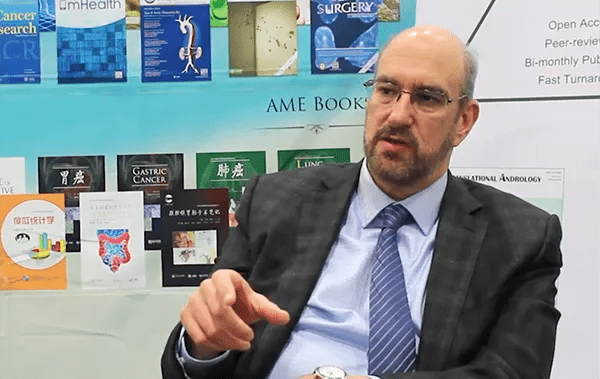Molecular-based assays aid diagnosis and treatment decisions

Genomic testing is increasingly impacting prostate cancer diagnosis and treatment, helping clinicians make more informed management decisions based on the specific molecular characteristics of an individual patient’s cancer.
Advertisement
Cleveland Clinic is a non-profit academic medical center. Advertising on our site helps support our mission. We do not endorse non-Cleveland Clinic products or services. Policy
In this seven-minute video, Eric A. Klein, MD, Chairman of Cleveland Clinic’s Glickman Urological & Kidney Institute, discusses the use of molecular-based tests in determining the appropriateness of active surveillance after diagnosis; in deciding about adjuvant versus salvage therapy following prostatectomy; and in selecting treatment options in metastatic castration-resistant prostate cancer.
Dr. Klein also describes the preliminary evaluation of IsoPSA™, a novel protein structure-based biomarker blood test used to differentiate patients with high-grade (Gleason > 7) prostate cancers from those with low-grade disease. The test was developed by Cleveland Clinic in collaboration with Cleveland Diagnostics, Inc.
The interview with Dr. Klein was conducted by Translational Andrology and Urology and is posted with permission.
Advertisement
Advertisement

First-of-its-kind research investigates the viability of standard screening to reduce the burden of late-stage cancer diagnoses

Global R&D efforts expanding first-line and relapse therapy options for patients

Study demonstrates ability to reduce patients’ reliance on phlebotomies to stabilize hematocrit levels

A case study on the value of access to novel therapies through clinical trials

Findings highlight an association between obesity and an increased incidence of moderate-severe disease

Cleveland Clinic Cancer Institute takes multi-faceted approach to increasing clinical trial access 23456

Key learnings from DESTINY trials

Overall survival in patients treated since 2008 is nearly 20% higher than in earlier patients